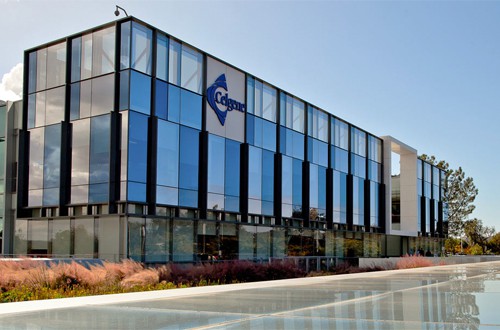
Celgene has agreed a deal to acquire San Diego-based start-up Impact Biomedicines for up to $7bn and add to its already-dominant position in blood disorders.
The US biotech is spending $1.1bn in upfront cash to buy Impact Bio and its late-stage drug candidate fedratinib, a JAK2 inhibitor in development for myelofibrosis and polycythaemia vera that was previously developed and discarded by Sanofi. If fedratinib is approved Impact’s shareholders could get another $1.4bn, with another $4.5bn in milestones if sales of the drug top the $5bn-per-year mark.
The new deal marks an incredible turnaround for fedratinib, which was dropped by Sanofi in 2013 after it was linked to cases of the brain disease Wernicke’s encephalopathy and placed under a clinical hold by the FDA. This type of encephalopathy is caused by thiamine deficiency, and there had been suggestions that fedratinib might inhibit thiamine uptake from the diet.
Impact’s CEO John Hood worked on the drug at Sanofi and saw potential in the programme however, deciding to set up Impact in order to acquire full rights to fedratinib in 2016.
The company persuaded the FDA to relax its clinical hold last year, and at the American Society of Haematology (ASH) meeting last December reported data showing that the incidence of Wernicke’s encephalopathy across nine clinical trials was no higher than might be typically expected in a patient population of that size.
Fedratinib demonstrated clinical improvement in the phase III JAKARTA-1 trial in treatment-naïve myelofibrosis patients, as well as in a phase II trial (JAKARTA-2) in patients resistant or intolerant to Incyte and Novartis’ rival JAK inhibitor Jakafi (ruxolitinib), which grew 35% to $831m in the first nine months of 2017.
A New Drug Application (NDA) for fedratinib in myelofibrosis is planned for mid-2018, according to Celgene, which also has its own candidate for anaemia associated with myelofibrosis and other blood disorders – Acceleron-partnered luspatercept – in phase II and III trials.
“We believe fedratinib is uniquely positioned as a potential treatment for myelofibrosis and it provides strategic options for us to build leadership in this disease with luspatercept and other pipeline assets,” said Nadim Ahmed, head of haematology and oncology for Celgene.
The deal comes at a time when confidence in Celgene has dipped on the back of a failed clinical programme in Crohn’s disease once tipped to be a potential blockbuster, and downgraded sales estimates for its haematological cancer drugs.




